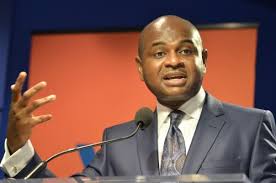In a compelling lecture at the University of Lagos, Kingsley Moghalu, a visionary leader and the president of the Institute for Governance and Economic Transformation, presented a bold assertion: Nigeria’s education system is the cornerstone upon which the nation’s future hinges. His message was clear—education must evolve to drive human capital development and position Nigeria as a formidable competitor on the global stage.

Moghalu’s insights came during the fifth Arthur Mbanefo Lecture, where he addressed the theme “Education and National Development: Meeting Nigeria’s Challenge in the 21st Century.” He emphasized the urgent need for an educational policy that not only enhances human capital but also strengthens Nigeria’s global standing.
The crux of Moghalu’s argument is the prioritization of access and quality in education, focusing on literacy, skills, and national values. He lamented the country’s “massive, progressive collapse of values” over recent decades, underscoring the importance of understanding education’s true purpose.
According to Moghalu, the socio-economic strength of a nation is inextricably linked to the robustness of its education system. He criticized Nigeria’s deviation from this principle, which has led to a decline in societal values. Education, he argued, should be centered around skill development, moving beyond rote memorization to equip learners with the skills necessary to build a strong human capital base.
In light of the Fourth Industrial Revolution, Moghalu reiterated the need for educated Nigerians to be skilled enough to create livelihoods, community wealth, and national value chains. This, he believes, is essential for the nation’s economic transformation and global competitiveness.
To achieve these lofty goals, Moghalu advocates for the integration of technology into the classroom. This would enhance teaching and learning experiences, provide teachers with access to educational resources, and promote collaborative learning through online platforms.
The lecture also highlighted the disparity in the Nigerian reward system, as evidenced by the significant salary gap between senators and vice-chancellors. Folasade Ogunsola, the vice-chancellor of the University of Lagos, echoed these sentiments in her remarks, praising Arthur Mbanefo’s contributions to education and the advancement of digital learning.
Moghalu’s call to action is a wake-up call for Nigeria to re-evaluate its priorities, especially in education. The nation’s future prosperity depends on its ability to nurture and harness the potential of its youth through a reformed educational system that is both inclusive and forward-thinking.
As Nigeria stands at the crossroads of development, the path forward is clear: invest in education, empower the next generation with the skills and knowledge they need, and watch as the nation rises to meet the challenges of the 21st century.




